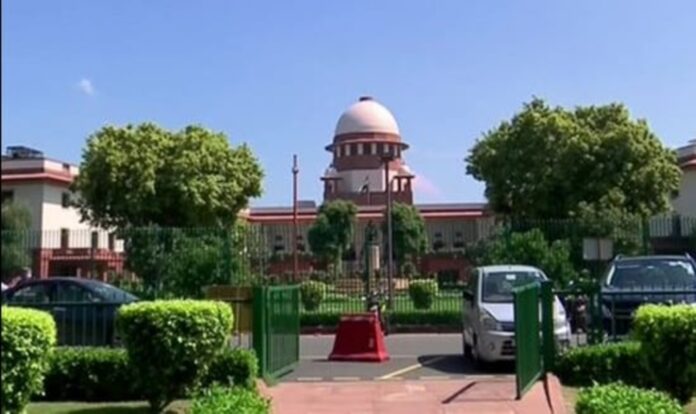The Supreme Court of India raised concerns on Tuesday regarding the Centre’s use of multiple committees to review the ban on pesticides, suggesting that it might be an attempt by the government to manipulate the outcome in its favor. The court’s remarks came during the hearing of several public interest litigations (PIL) filed by NGO Vanashakti and others, challenging the Centre’s February 2023 order that banned only three pesticides. The PILs highlighted that a sub-committee led by SK Khurana in 2020 had recommended the ban of 27 pesticides due to their carcinogenic properties. However, the Centre later formed a different committee headed by TP Rajendran in September 2022, which significantly narrowed down the ban to just three pesticides.
The bench, headed by Chief Justice of India (CJI) Dhananjaya Y Chandrachud, along with Justices JB Pardiwala and Manoj Misra, questioned the need for successive committees and expressed suspicion that the government might be attempting to obtain a favorable decision by forming multiple bodies. The court sought explanations from the Centre as to why the Khurana committee’s recommendation to ban 27 pesticides was disregarded in favor of the Rajendran committee’s decision to ban only three. The judges pointed out the pattern of forming new committees whenever an adverse report was received, indicating a potential lack of transparency in the decision-making process.
In response, Additional Solicitor General (ASG) Vikramjeet Banerjee, representing the Centre, defended the government’s actions, stating that the decisions were based on scientific considerations and followed the appropriate procedures. He argued that the petitioners were discontent with both the scientific basis and the procedural aspects of the decisions, leading to their complaints. The court emphasized the need for satisfaction that the Centre had indeed followed both scientific evidence and the proper procedure while making these decisions.
The matter was adjourned for further hearing on August 1, allowing the Centre to address the court’s concerns. Advocate Prashant Bhushan, arguing on behalf of the petitioners, urged the government to clarify why the ban was limited to only three pesticides despite the draft notification in 2018 proposing a ban on 27 pesticides due to their carcinogenic nature and threats to human life. The PILs also sought a ban on other pesticides not covered in the draft notification. Bhushan highlighted that these pesticides were banned internationally for their adverse health effects, alleging that the government had yielded to industry lobbying, which opposed the ban.
The initial recommendation to ban 27 pesticides was based on a study conducted by a committee led by SK Malhotra in 2017. The NGO Vanashakti had approached the Supreme Court in 2017, urging the court to expand the ban to include other pesticides as well, which is still under consideration. The Supreme Court’s probing questions shed light on the government’s decision-making process regarding pesticide bans and the need for clarity and transparency in such critical matters affecting public health and the environment.


